work/content strategy
planning and creating intelligent content

the ability to meet the content demands of the experience a team creates with useful, useable media is one of the most demanding tasks of any digital effort. it forces individuals and organizations into the role of publisher, which requires the wrangling of many voices into a singular expression. let's walk through it together.
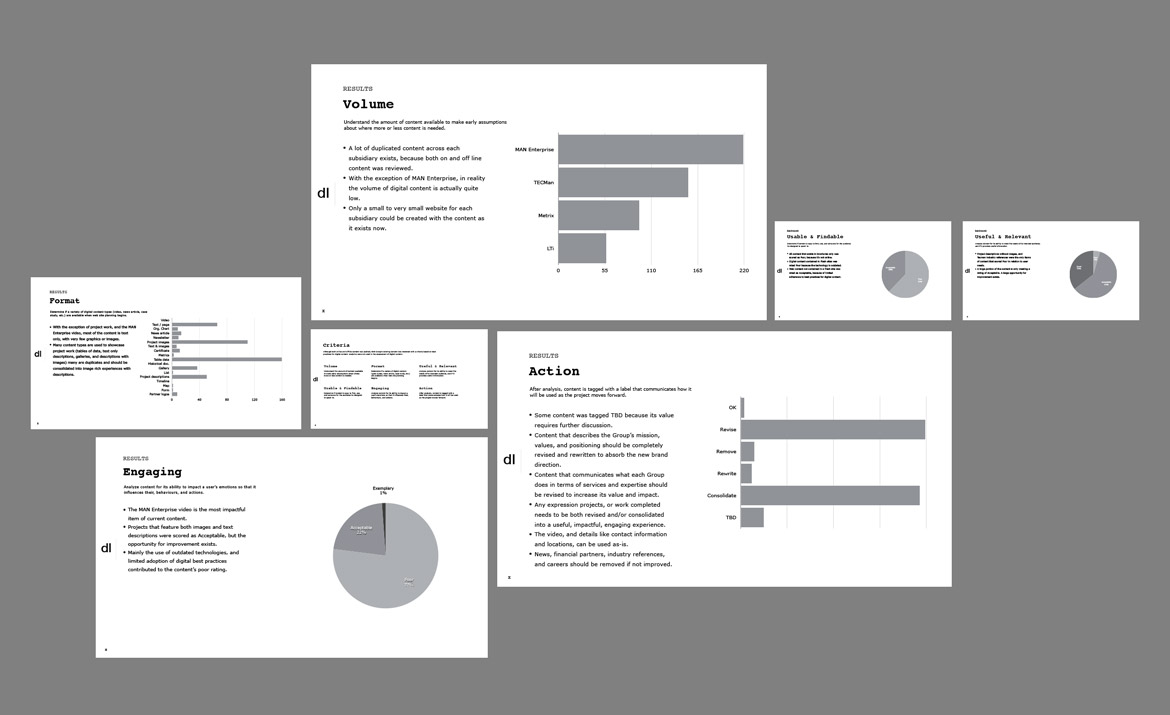
audit & assessment
content strategy begins with an audit and assessment of the current content landscape. having audit results allows the creative strategist to make early decisions about what can be used, what should be discarded, and what needs to be created. a content audit is also often the first implication as to the complexity and effort a project will require.
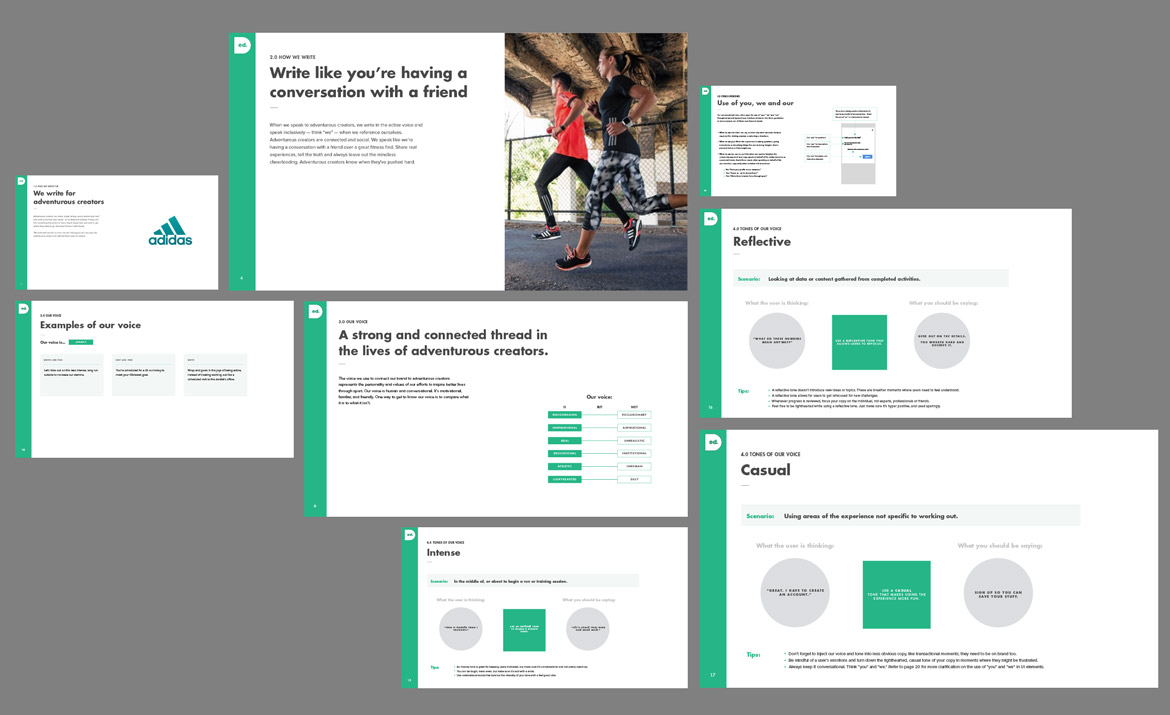
voice guide for adidas training app © engine digital
architecting voice & tone
a tone and voice guide connects writing to an organization's brand. it's important to have one in place before creating content so that it can author a clear, consistent writing voice in a style and character that's both unique and ownable.
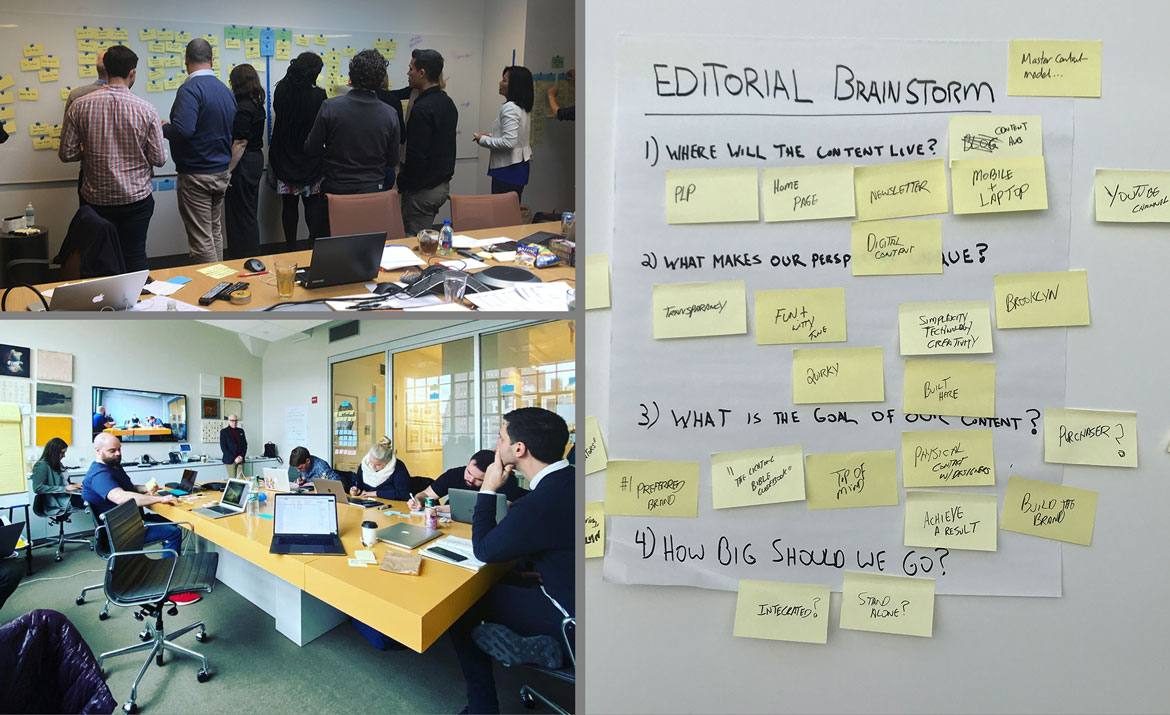
editorial planning
editorial planning leans on the expertise and processes of the publishing industry to harness the creation of content. it's important to map out the steps needed to create content, from idea to end product, because there are usually many people involved in its creation and approval. editorial planning is often a collaborative activity.
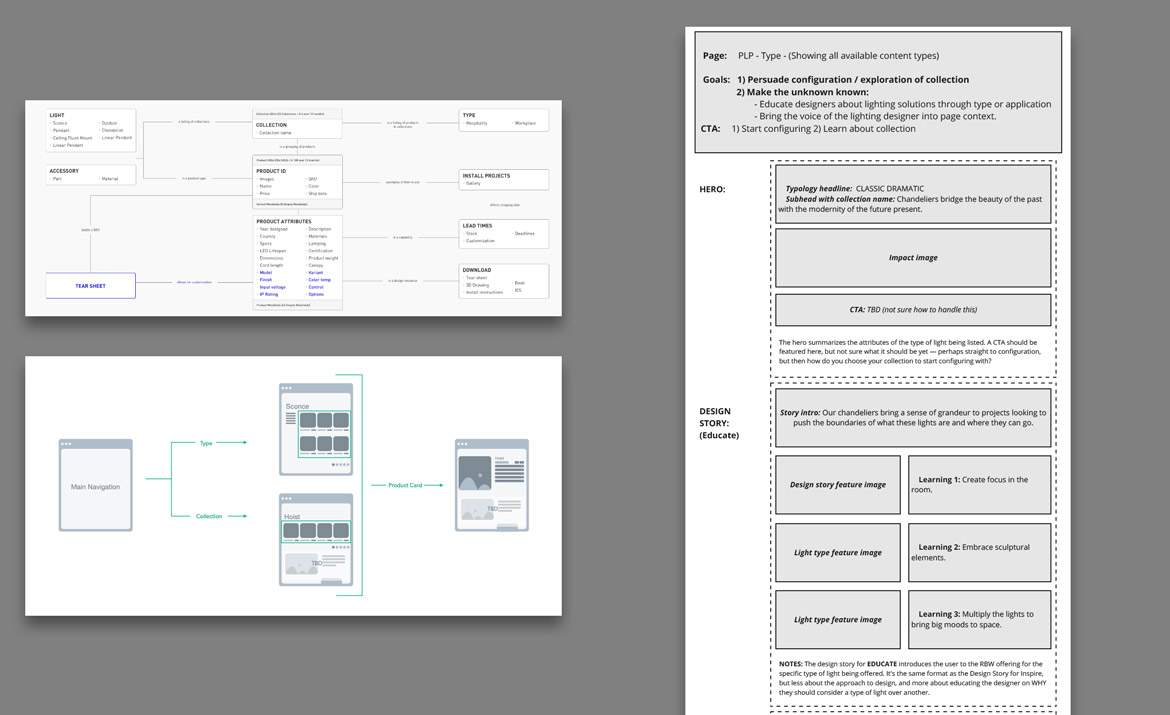
various types of content models
modelling & structuring
content models define the types of content that make up a system or experience. they document the elements contained within each content type, and their relationship to other types of content within the domain. they also help to structure content hierarchies, specifications, and data that helps machines understand how to use each content type. they can take on many formats: from a drawing, to a spreadsheet, to a simple word or google document. wireframes can also be used in place of content models, but for planning complex systems they're indespensible.
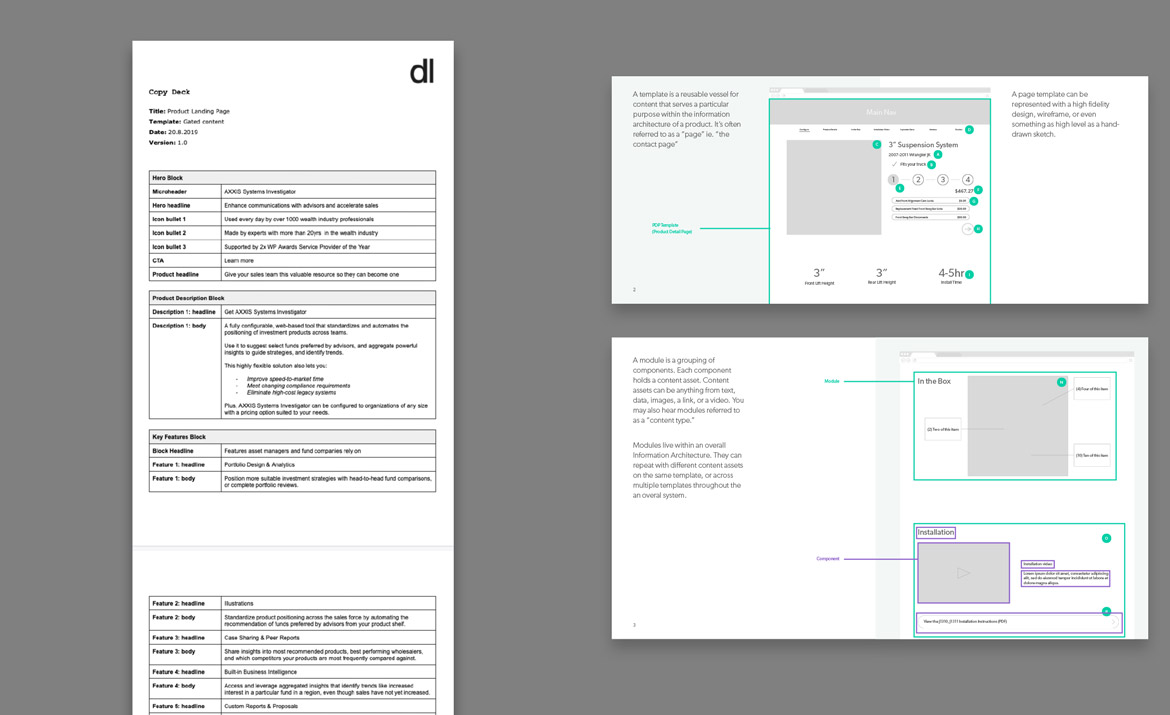
copy deck with a content requirements guide
authoring the actual content
with a tone of voice and style guide defining the look and feel of the writing, a content model informing what's needed and where it's going, and an editorial process to help the team understand how to make it, it's time to get to work. the copy deck is the artifact most often used to hold content before it's placed into a cms. copy decks often align to an annotated wireframe or content model to help writers understand what to say, and how much room they have to say it.
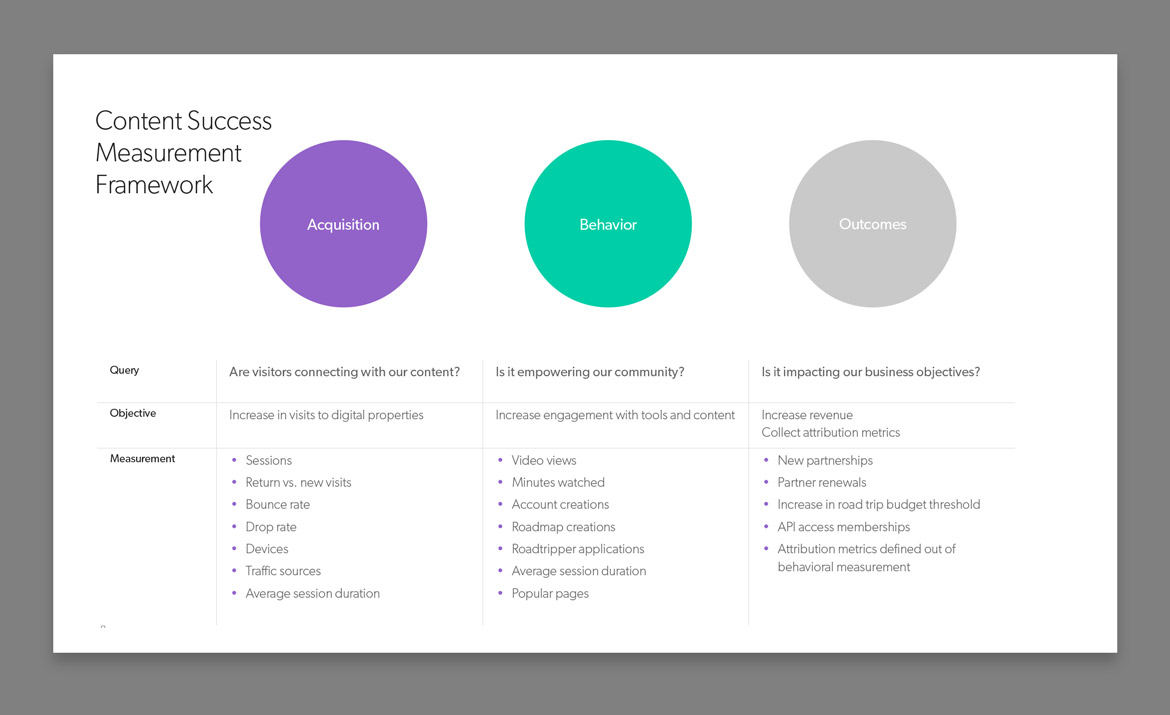
management & measurement
a framework to define what needs to be measured to understand how well content is working should follow its original deployment. with this framework in place, analytics can be used to inform decisions around the editing, removal or creation of new content. with the artifacts outlined on this page in place, creating useful content to address what the data reveals can be seamless process that aligns multiple stakeholders.
next: services & process
2025 prestonlook.com
share under creative commons